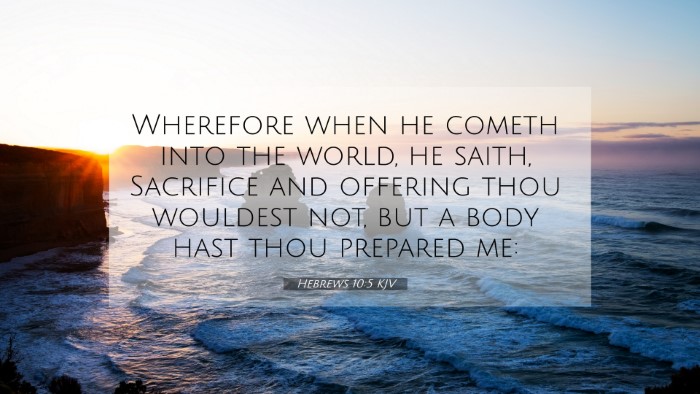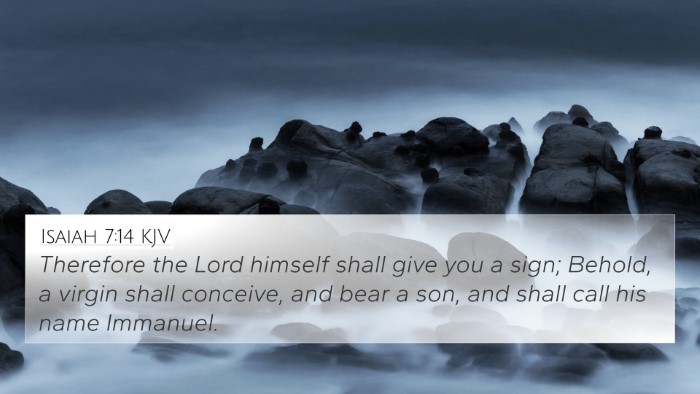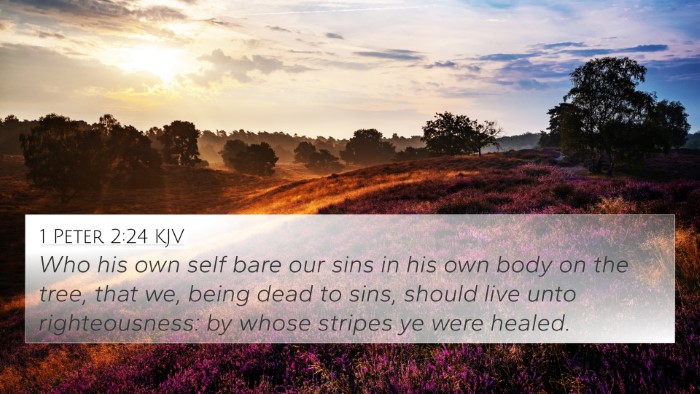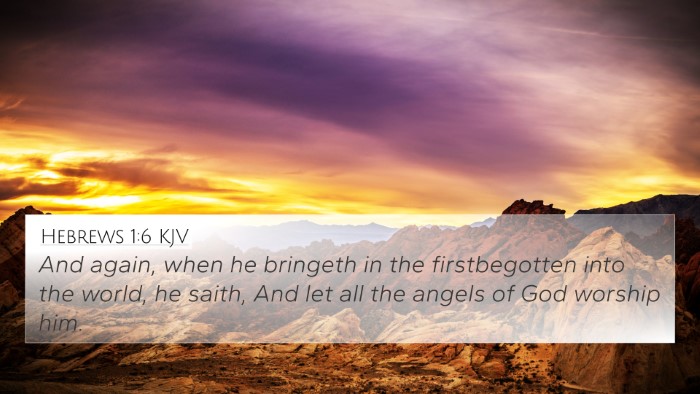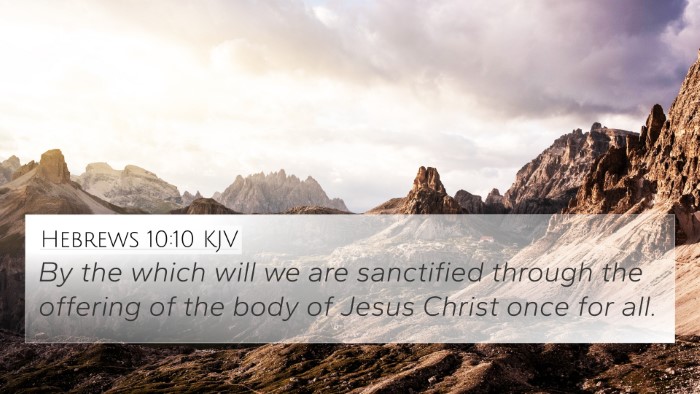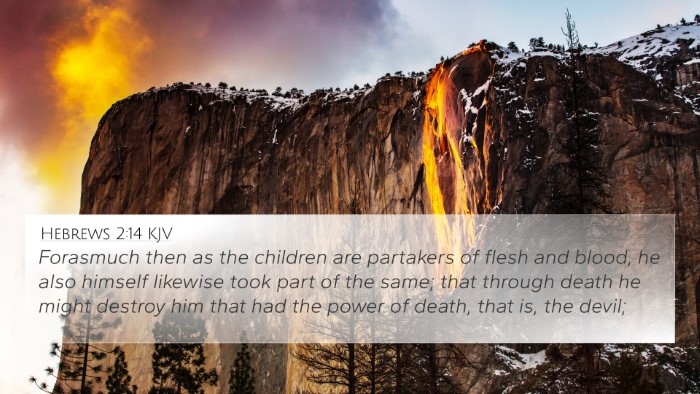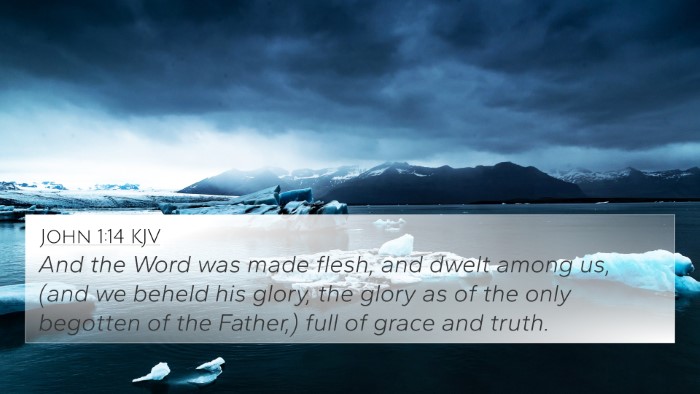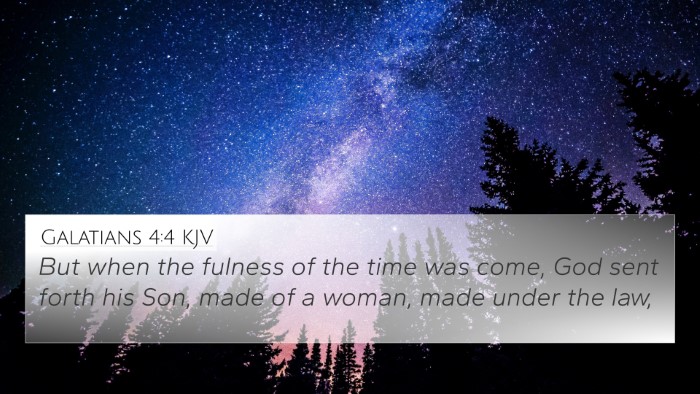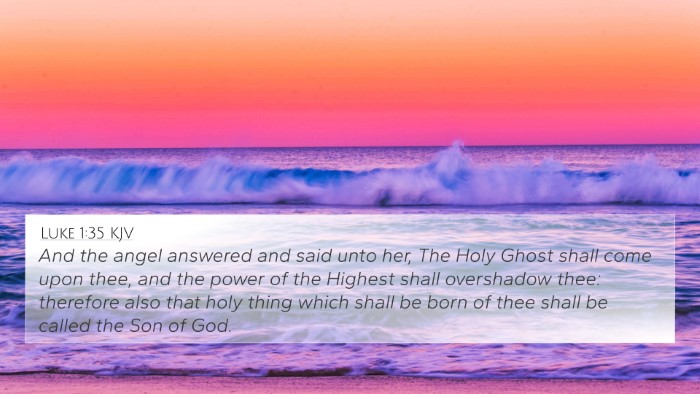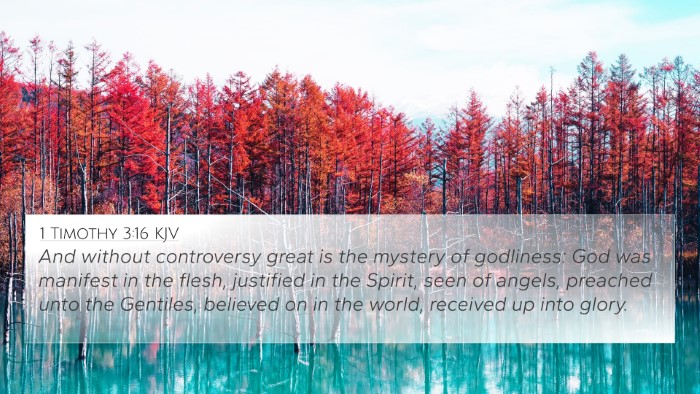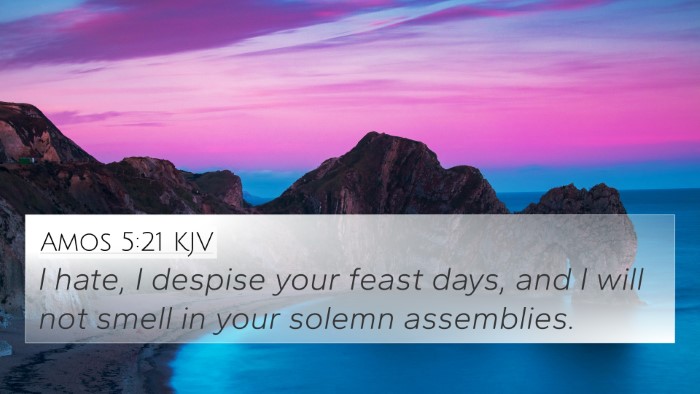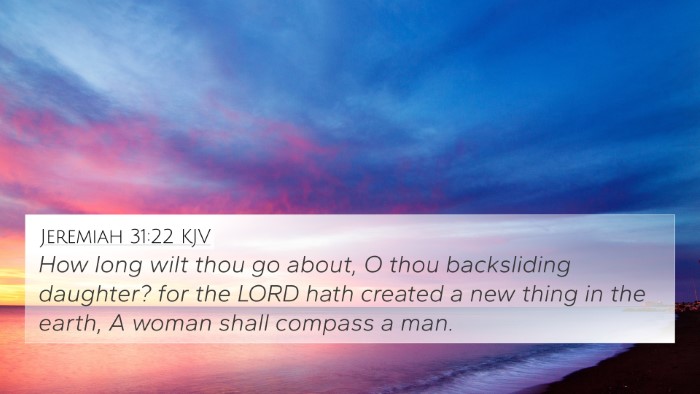Understanding Hebrews 10:5
Hebrews 10:5 states, "Therefore, when He came into the world, He said: 'Sacrifice and offering You did not desire, but a body You have prepared for Me.'" This verse signifies the transition from the Old Covenant's sacrificial system to the New Covenant established by Christ. It emphasizes the importance of the incarnation of Jesus, highlighting that God prepared a physical body for Him to fulfill His purpose.
Summary of Meaning
This verse underscores several themes significant in both the Old and New Testaments:
- Divine Preparation: God prepared a body for Christ, showing His intention in the salvation plan.
- Fulfillment of Prophecy: It connects to prophecies of the Messiah who would come to redeem humanity.
- Contrast of Sacrifice: It shows the inadequacy of animal sacrifices, paving the way for Christ's ultimate sacrifice.
Commentary Insights
Matthew Henry's Commentary: Matthew Henry emphasizes that this scripture reveals the insufficiency of animal sacrifices in securing atonement for sin. The body prepared for Jesus signifies God's willingness to send His Son into a mortal frame to be the perfect sacrifice.
Albert Barnes' Commentary: Barnes explains that the phrase “You did not desire” indicates that the old sacrifices were not sufficient for true reconciliation with God. By preparing a body for Christ, it was God's plan to establish a new covenant centered on faith rather than ritual.
Adam Clarke's Commentary: Clarke points out that this declaration from Christ illustrates His obedience and divine mission. He reflects on previous sacrifices, noting they were a shadow of the true sacrifice that was to come in Jesus. The preparation of a body highlights that Jesus became fully human while also being fully divine.
Cross-References for Hebrews 10:5
In exploring the connections between Bible verses, Hebrews 10:5 relates to numerous other passages that illustrate the themes of sacrifice, Christ’s mission, and God’s redemptive plan. Here are some significant cross-references:
- Psalm 40:6-8: "Sacrifice and offering You did not desire, but My ears You have opened..." - This passage is quoted directly in Hebrews, emphasizing that God seeks obedience over mere ritual.
- Isaiah 53:5: "But He was wounded for our transgressions..." - Prophecy pointing to the suffering servant who would bear the sins of many.
- John 1:14: "And the Word became flesh and dwelt among us..." - Affirming the incarnation of Christ, which is pivotal in understanding Hebrews 10:5.
- Romans 12:1: "Present your bodies a living sacrifice..." - Reflecting the call for believers to present themselves in holiness following Christ's ultimate sacrifice.
- 1 Peter 2:24: "Who Himself bore our sins in His own body on the tree..." - Further emphasizing Christ's sacrificial role.
- Ephesians 5:2: "And walk in love, as Christ also has loved us and given Himself for us, an offering and a sacrifice to God..." - This reinforces the understanding of Jesus as our sacrificial offering.
- Hebrews 9:26: "...but now, once at the end of the ages, He has appeared to put away sin by the sacrifice of Himself." - Directly links to the significance of Christ’s sacrifice.
Theological Insights
The preparation of Christ's body emphasizes the theological concept of substitutionary atonement. In this context, Jesus became the ultimate sacrificial lamb, fulfilling the law and bridging the gap created by sin. The thematic links in Hebrews 10:5 to both the Old and New Testaments illustrate the continuity of God's plan for salvation through Jesus Christ.
Tools for Cross-Referencing Biblical Texts
For those interested in exploring cross-references and connections between Bible verses, here are some tools and methods to enrich your study:
- Bible Concordance: A comprehensive alphabetical list facilitating the location of verses, enhancing the understanding of Biblical texts in context.
- Bible Cross-Reference Guide: Reference materials that offer suggestions for related verses based on keywords and themes.
- Cross-Reference Bible Study: Methods and practices that engage readers in finding connections and deeper meanings in scripture.
- Bible Reference Resources: Various resources available, including study Bibles, commentaries, and online tools that assist in locating interrelated Biblical concepts.
Exploring Inter-Biblical Dialogue
Engaging with scriptures through inter-Biblical dialogue provides insights into the multifaceted nature of Biblical narratives. By comparing passages, such as those found in Hebrews with the foundations laid in the Old Testament, one can gain a greater understanding of God’s overarching themes, including grace, mercy, and redemption.
Conclusion
Hebrews 10:5 presents profound theological truths about the mission of Christ and the inadequacy of the sacrificial system of the Old Covenant. Understanding this verse through the lens of commentaries and its cross-references allows readers to appreciate the richness of Scripture and the seamless narrative of redemption woven throughout the Bible. This verse calls believers to recognize the significance of Christ’s incarnation and the ultimate sacrifice He made for humanity.


